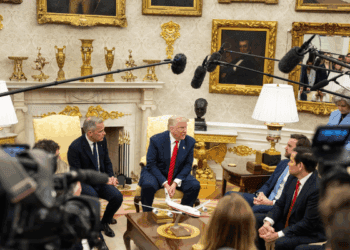 Clearing the way for more pipelines to be built – not a plunge into deficit spending – is the best way for Ottawa to provide long-term economic growth.
Clearing the way for more pipelines to be built – not a plunge into deficit spending – is the best way for Ottawa to provide long-term economic growth.
By Brian Lee Crowley and Sean Speer, July 28, 2016
Last week’s IMF report that showed Canada’s economic performance climbing the ranks of G-7 countries has pro-deficit Keynesians puffing their collectivist chests. Many have interpreted the upward revision as validation of Ottawa’s deficit-financed stimulus spending.
But a deeper read of the report tells a different story. The improvement to Canada’s relative performance wasn’t because of government policy — but in spite of it. Aprojected rise in oil prices is why IMF economists are more bullish on Canada. Deficit spending has nothing to do with it.
So what should Canadians take away from the IMF’s assessment? The need to realize the full economic potential of Canada’s oil resources is stronger than it has ever been. Getting pipelines built would provide a short- and long-term boost to the Canadian economy.
The dramatic drop in oil prices and the resultant effect on those Canadians who work in the sector should not be understated. Recent reports suggest that the oilpatch’s contraction will be among the greatest in modern history. Workers and their families have suffered real hardship. Jobs and homes have been lost.
 The causes of the energy downturn are too complex to cover here. A supply glut produced by countries with antithetical interests to our own is surely part of the explanation. But many issues have no doubt contributed to the global price shock that dampened economic activity in Canada.
The causes of the energy downturn are too complex to cover here. A supply glut produced by countries with antithetical interests to our own is surely part of the explanation. But many issues have no doubt contributed to the global price shock that dampened economic activity in Canada.
Irrespective of the causes, the Trudeau government was certain of the solution. Budget deficits and stimulus spending on infrastructure would assuredly “kick-start growth.”That the Canadian economy was still projected to grow and that experts argued fiscal stimulus was likely to have little impact on such a supply-driven slump did not seem to matter. The spending taps were turned on. March’s federal budget announced $120 billion in cumulative deficits and counting over the next handful of years.
And now, just four months later, the IMF confirms that the worst of the oil price crash is over and Canada’s economy will therefore be one of the fastest-growing major economies. Yet Ottawa is still sticking with ongoing deficits.
Is there a better answer? If the IMF’s analysis is anything to go by, it is in getting even more economic value out of Canada’s energy resources.
The uptick in oil prices notwithstanding, Canada’s oil exports continue to sell at a steep discount to the world price — about 30 per cent less per barrel — because a lack of export pipelines has us almost entirely dependent on the U.S. market. And, as the U.S. develops its own resources, its need for ours is declining. The result is that we are subsidizing American energy consumption while forgoing jobs and investment at home.
Getting the world price for Canadian oil exports would result in more jobs and money for Canadians without having to produce a single extra barrel. This can translate into more investment, higher government revenues, and a significant boost to the Canadian economy totalling as much as $50 million per day, according to one estimate from the Canadian Chamber of Commerce.
The answer lies not in more spending and more deficits but in a clear commitment to supporting pipeline construction and getting full value for our resources.
And this does not even account for unlocking billions of dollars in private capital investment for productivity-enhancing infrastructure rather than Ottawa borrowing for cultural centres, child-care facilities, and hockey rinks. The government’s whole argument was that real infrastructure is a free lunch because the higher productivity it produces will more than pay for the cost of borrowing. But if the private sector will do the job at no cost to government, why should taxpayers borrow?
There’s a catch of course. Realizing this economic potential will require political leadership. It means ignoring shrill anti-development voices that oppose pipelines for all kinds of ludicrous and demonstrably false reasons. It means standing behind the independent regulatory process rather than succumbing to manipulative and emotional critiques. And it means accepting that not everyone can be persuaded, and that economic opportunity should not be passed up in a doomed search for consensus. Real leaders would stand up for the industry and the real prosperity and jobs it creates.
The Trudeau government is rightly committed to promoting economic growth. The answer lies not in more spending and more deficits but in a clear commitment to supporting pipeline construction and getting full value for our resources. That would be a real agenda to kick-start Canada’s economy now and for the future.
Brian Lee Crowley is the managing director and Sean Speer is a Munk senior fellow at the Macdonald-Laurier Institute




